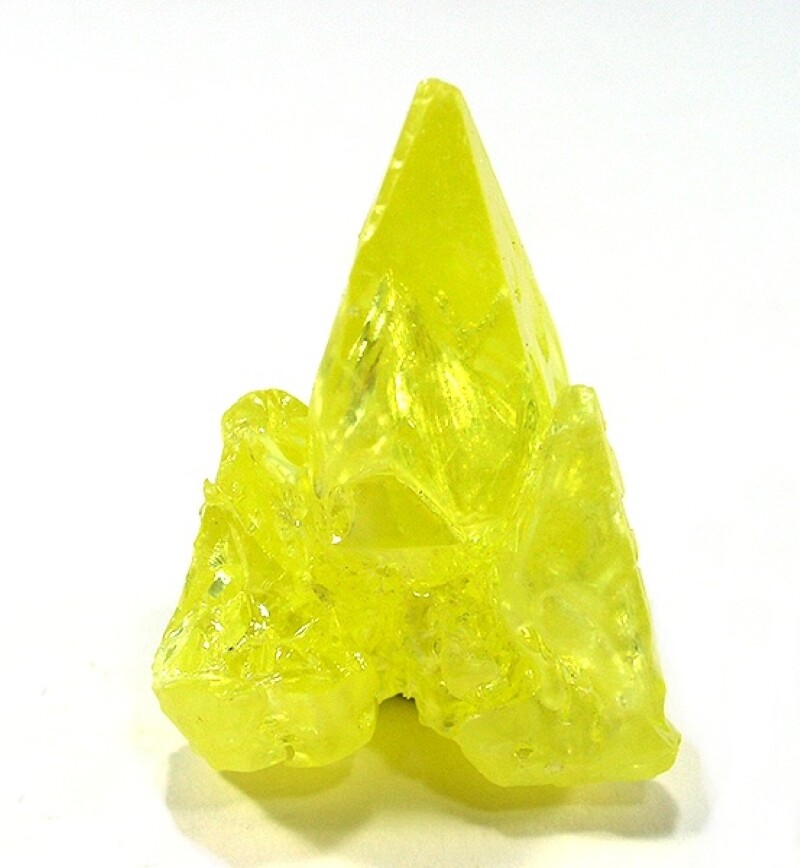Today, I woke up with a powerful curiosity. What drove it, I cannot tell you. Perhaps I had a particularly stinky nightmare the details of which are lost in dreamland. Whatever spurred it, I suddenly had a deep need to know, what was the stinkiest element on the periodic table? Which of the many squares on the preferred wall-hanging of big-time nerds everywhere would make my eyes water?
I had my assumptions. Sulfur, for example, is famously stinky. After a quick Google search to confirm that, yes, sulfur is in fact an element, it remained at the top of my list. But there was still so much table to smell. Or at least, hear the accounts of people with more access to scientific tubes and globs of various atomic stuffs. So off I was to corners of the internet where scientists answer the questions of the common man with what can be generously described as “waning patience.”
The first thing I discovered was that my stink bracket had immediately been busted. It turns out sulfur’s been getting besmirched forever on the basis of its compounds, not sulfur alone. Since we’re talking about elements, I’m considering them in their pure, stable states, which for sulfur is a yellow crystal that, to me, looks like it would recharge some sort of stamina bar and/or be used to upgrade my weapon. More to the point, pure sulfur has no smell. Something you undoubtedly shouldn’t feel bad about not knowing, given the constant use of “sulfur smell” to describe the eggy stink of its compounds.
Other commonly indicated atomic stinkers are in the same boat, where their compounds smell horrible but the pure element isn’t offensive. So, what element needs zero helping hands to reek something horrible?
I found the answer on Quora, which means I almost immediately dismissed it, but the person answering the question, Barry Gehm, is an assistant professor of chemistry and biochemistry at Oxford, so I gave it the benefit of the doubt. He had a surprisingly straightforward answer: bromine. Apparently, if my knowledge of Latin was better (READ: existent), I might have already had this hunch, since the name comes from the Latin bromos, meaning “stench.” A little further research confirmed that yes, in fact, bromine smells awful, and beyond that, physically irritates the entire pulmonary system. It’s also toxic if inhaled in large amounts, but accounts I’ve found say you would be sprinting away long before that happened.
A video by chemistry YouTuber NileRed gives us a look and preview of what uncorking a bit of bromine does:
If you’ve seen some of NileRed’s videos, you’ll know that he has a famously iron nose, so the fact that within a second or two of opening the bottle, he coughs and exits stage left is truly impressive. A commenter, for whatever truth that’s worth, mentions getting a whiff of bromine in college while carrying it from a fume hood to a counter and having his nose burn for two weeks.
What does it smell like, exactly? The scientific corners of the internet and their tame, boring descriptions merely call it “bleach-like.” More colorful descriptions say it smells like “more chlorine than chlorine,” or “chlorine mixed with vomit.” Funnily enough, though not nearly at the strength of the element itself, you may well have smelled bromine before. That’s because it’s sometimes used as an alternative to chlorine in pools and spas. It’s a weird enough smell that it inspired a writer for Fodor’s travel guides to do a full, delightful investigation on why the Pirates of the Caribbean ride at Disney smells so strange. The answer, it turns out, is bromine.
So, if you’ve ever done a curious double-sniff on that specific ride, just imagine that times a thousand.

